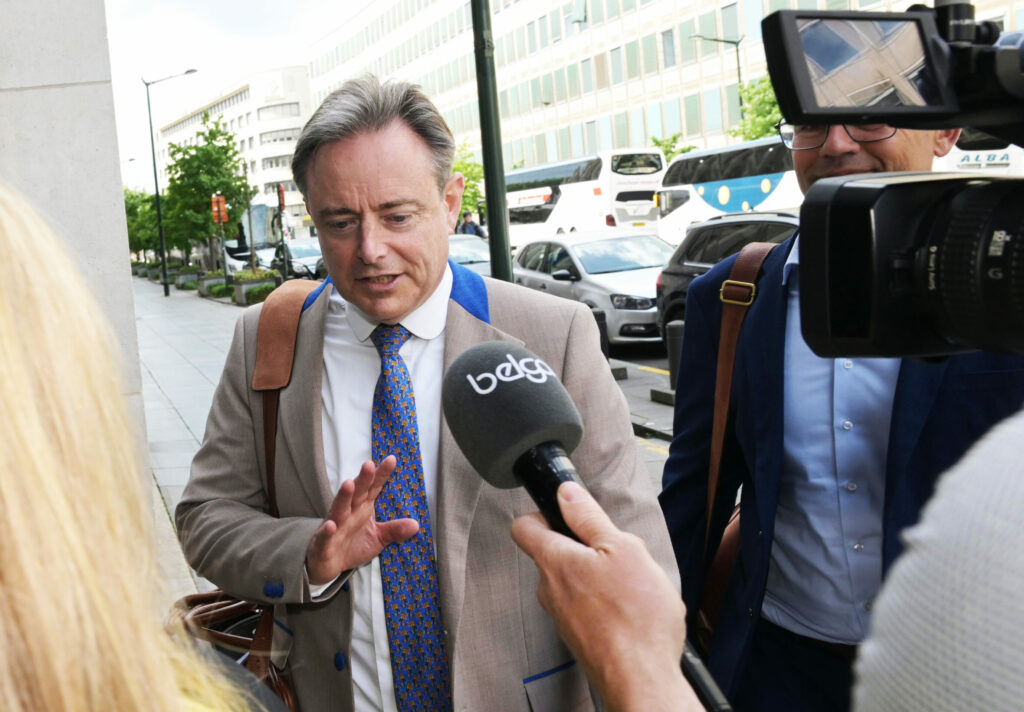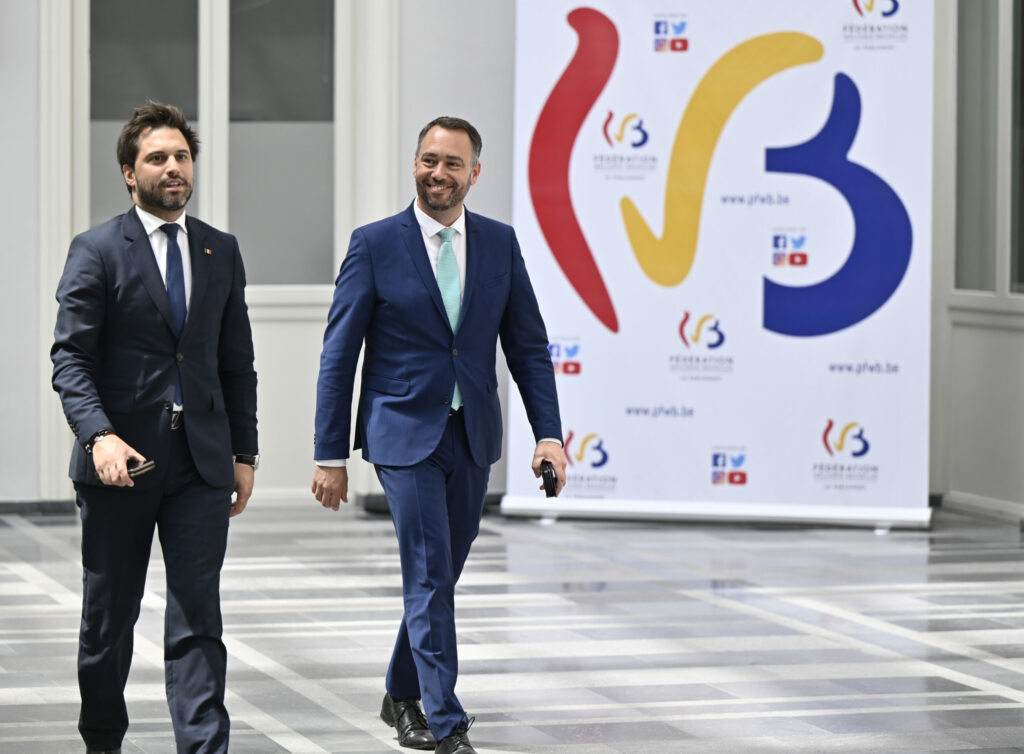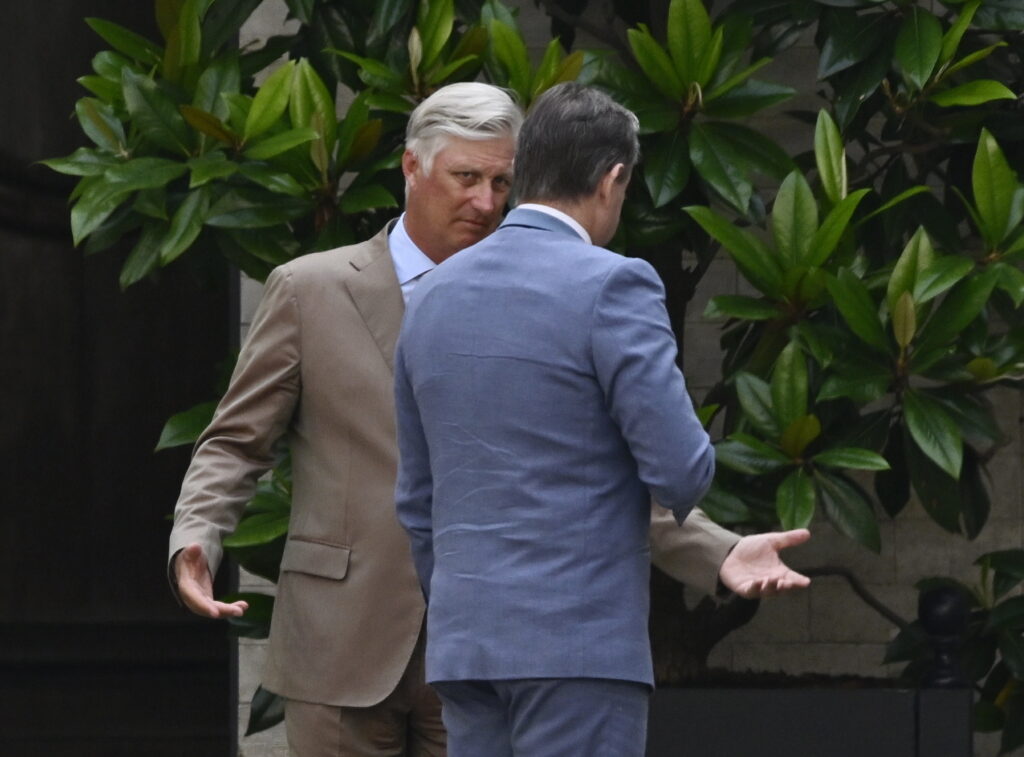More than 70 days after the elections, Belgium is no closer to forming a Federal Government. As another round of late-night negotiations came to nothing, formator Bart De Wever (N-VA) will likely go empty-handed to his meeting with King Philippe on Thursday evening. But what happens then?
Initial hopes that the election results would create obvious coalitions for the Federal Government have now faded to doubt and uncertainty after De Wever on Sunday tabled a proposal for a capital gains tax on shares. Since then, negotiations have been deadlocked.
"Everyone had become very optimistic because all the doom scenarios did not come to pass on 9 June. But it's not surprising that it hasn't been plain sailing," Dave Sinardet, professor of political science (VUB), told The Brussels Times.
Searching for a middle ground
"While the coalition of N-VA, CD&V, Vooruit, MR and Les Engagés is the most obvious formation, it still has to reconcile several different political visions. And that under difficult circumstances, with big budgetary savings hanging over them," Sinardet explained.
By 20 September, Belgium must submit a budget plan to the European Commission that will rein in the high budget deficit and public debt with €28 billion in savings. €14 billion of this will be sought through reforms and €14 billion through additional taxes or spending cuts.
As part of his socio-economic "super note"(which outlines the government's budgetary priorities), De Wever proposed a 10% capital gains tax on shares and bonds. While the Flemish socialist party Vooruit sees this as "absolutely essential", the Francophone liberal party MR is adamantly opposed.
"De Wever's role as formator puts rightwing N-VA in a more conciliatory position. But Vooruit and MR are the two extremes that N-VA must bring together," Sinardet said. Meanwhile, the Flemish and Francophone centrists CD&V and Les Engagés form a solid bloc in the middle.

N-VA leader Bart De Wever entering Federal Government formation talks in July 2024. Credit: Belga / Jonas Roosens
As the only left-leaning party in an otherwise centre-right coalition, Vooruit was initially isolated in budget discussions. De Wever's proposed capital gains tax has now been interpreted as a clear concession to the socialists, but this is a bitter pill for MR to swallow.
"On top of that, past frustrations between Vooruit and MR from the Vivaldi Government are resurfacing," Sinardet added. "A number of personal differences also play a role (party leaders Conner Rousseau and Georges-Louis Bouchez famously do not get along, ed. note), although I wouldn't put the current difficulties down to that alone."
Wednesday night, De Wever reportedly put his "ultimate proposal" on the table. But the negotiating teams failed to break the deadlock. On Thursday afternoon, Belga News Agency reported that Bouchez had formally rejected the proposal, lowering the chances that a solution would be found before De Wever's consultation with King Philippe at 20:15.
No avoiding the maths
Should De Wever go to the Royal Palace without an agreement, there are several courses of action the King might take. "In theory he could go back to square one and ask for a new coalition formation. But the issue is that no other coalition is immediately obvious. While some options are mathematically possible, they pose an even greater political challenge."
More importantly, a different combination of coalition partners wouldn't solve the current problem. Bringing the Francophone socialists PS back to the negotiating table would only widen the gap between Vooruit and MR. Cutting MR out of the equation or re-launching the previous Vivaldi Government would also be extremely problematic.
"The fundamental issue is that there is a deal between N-VA and Vooruit to govern together everywhere – including in Antwerp, which is very important for the city's mayor De Wever," Sinardet said. "So De Wever won't want to drop Vooruit, and on the other side Les Engagés will not drop MR, because they also have an alliance to govern together at different levels."

MR leader Georges-Louis Bouchez (left) and Les Engagés' leader Maxime Prévot arrive for a press conference. Credit: Belga/Eric Lalmand
The more likely option would be for the King to appoint a new formator who will continue trying to make progress with the current N-VA, CD&V, Vooruit, MR and Les Engagés partnership. Who that person would be, however, remains up in the air.
"Many negotiators point to Bouchez as the one holding up the negotiations. So the King could decide to give him a go at finding an agreement himself. That way, he would have to become more lenient. Someone more in the middle is also an option, in which case it could be Les Engagés leader Maxime Prévot."
Theoretically, the King could appoint Bouchez and Rousseau as a duo or contact an experienced statesman to try to cool the tensions and work on a different solution. But Sinardet doesn't think either of those options is likely.
No more Prime Minister De Wever?
Around 16:30 on Thursday, De Wever officially confirmed that he would step out of his role as formator. "If all five parties do not want to come along, there is little else left to do," he said.
Even without being formator, De Wever might still become Prime Minister. Yves Leterme (CD&V) failed in his formation assignment in 2007 but still became Prime Minister. "But suppose someone else is appointed and succeeds in forming a government. Then it would be only logical for that person to also become Prime Minister," Sinardet said.
Whether this will be possible before the self-imposed 20 September deadline or even before the municipal elections on 13 October is difficult to say. "If this turns into a crisis and nobody knows which direction to take, I fear it will be impossible. But a lot is still possible."

